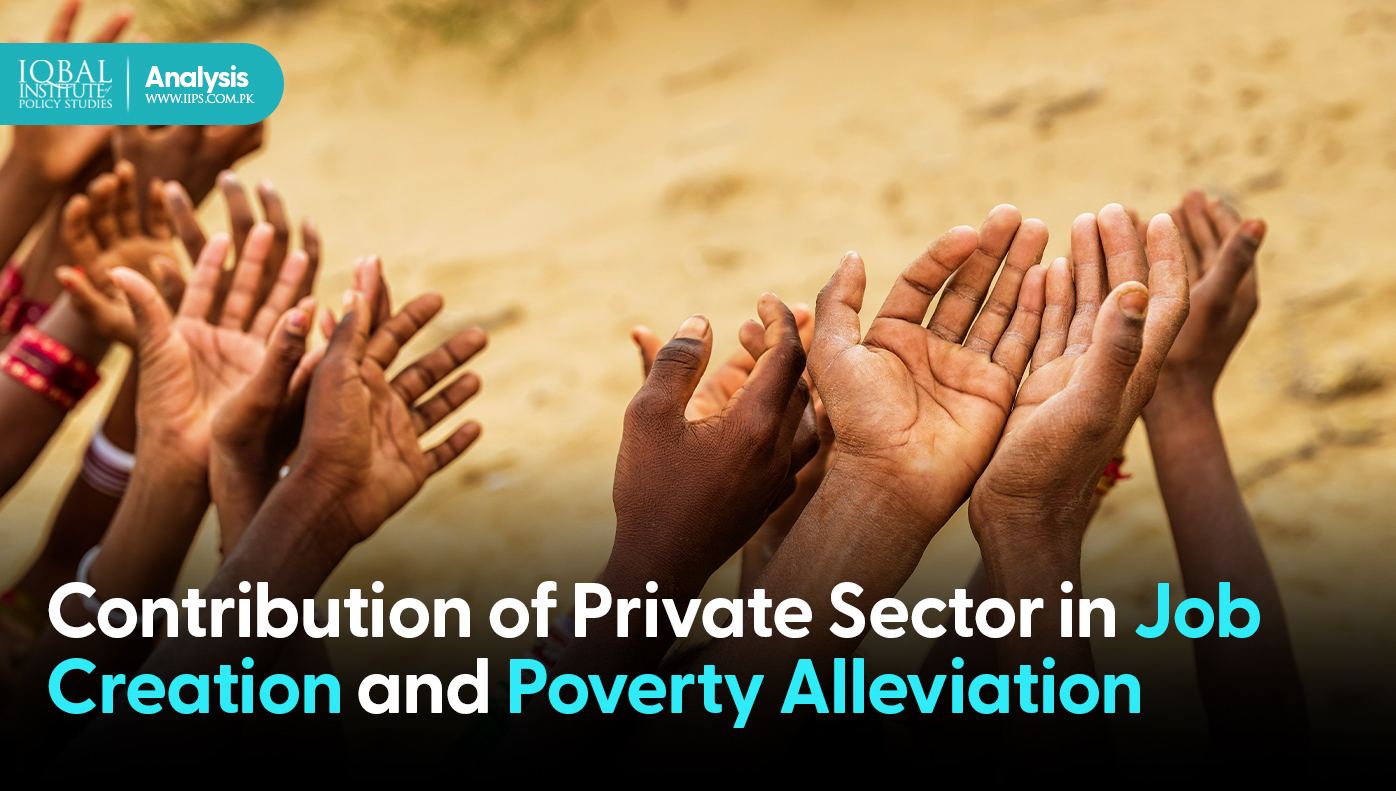The private sector plays a major role in creating jobs and wealth in a country. It works as a powerful agent in alleviating poverty, generating employment opportunities, and promoting the general public’s well-being.
The sector makes up nine out of ten jobs in the global market and provides job accessibility to the 735 million people living at or below the poverty line. It is also known as the citizen sector and is owned by private corporations. Jobs provided by the private sector act as an investment that lead to global poverty reduction.
Since its inception in 1947, Pakistan has relied on the private sector as the primary producer of goods and services in the economy, a major contributor to investment, and the largest employer. Despite so much importance, Pakistan hardly invests in its private sector.
Private investment as a share of GDP is declining subsequently and currently stands at 10 per cent (Dawn,2021). This low contribution of private investment to GDP declines labour productivity and reduces Pakistan’s growth potential.
Pakistan’s private sector is eager and well-placed to flourish in the large domestic market and has the potential to enhance and diversify the country’s economic growth. However, the sector’s progress has been hindered by low government investment, onerous regulations, taxes, and poor infrastructure.
Pakistan must increase its private sector investment to 25 to 30 per cent of GDP by encouraging economic competitiveness and access to finance and infrastructure (Dawn,2021). A well-flourished and well-developed private sector can bring competitive orientation, poverty reduction, and full employment to the country.
The private sector acts as an engine of economic growth. A well-developed private sector creates jobs and pays the taxes that finance services and investment. In developing countries, it generates 90 per cent of jobs, funds 60 per cent of all investments and provides more than 80 per cent of government revenues (Dawn,2021).
Moreover, the private sector helps the industry cope with the ongoing process of structural change by encouraging company-level competitiveness and the development of efficient forms of intercompany specialisation.
In Pakistan, the Private sector is a key stakeholder in economic development, a major contributor to national income, and a principal job creator. It provides around 90% of employment in the country (including formal and informal jobs) and helps alleviate poverty by raising people’s living standards.



Leave a Reply